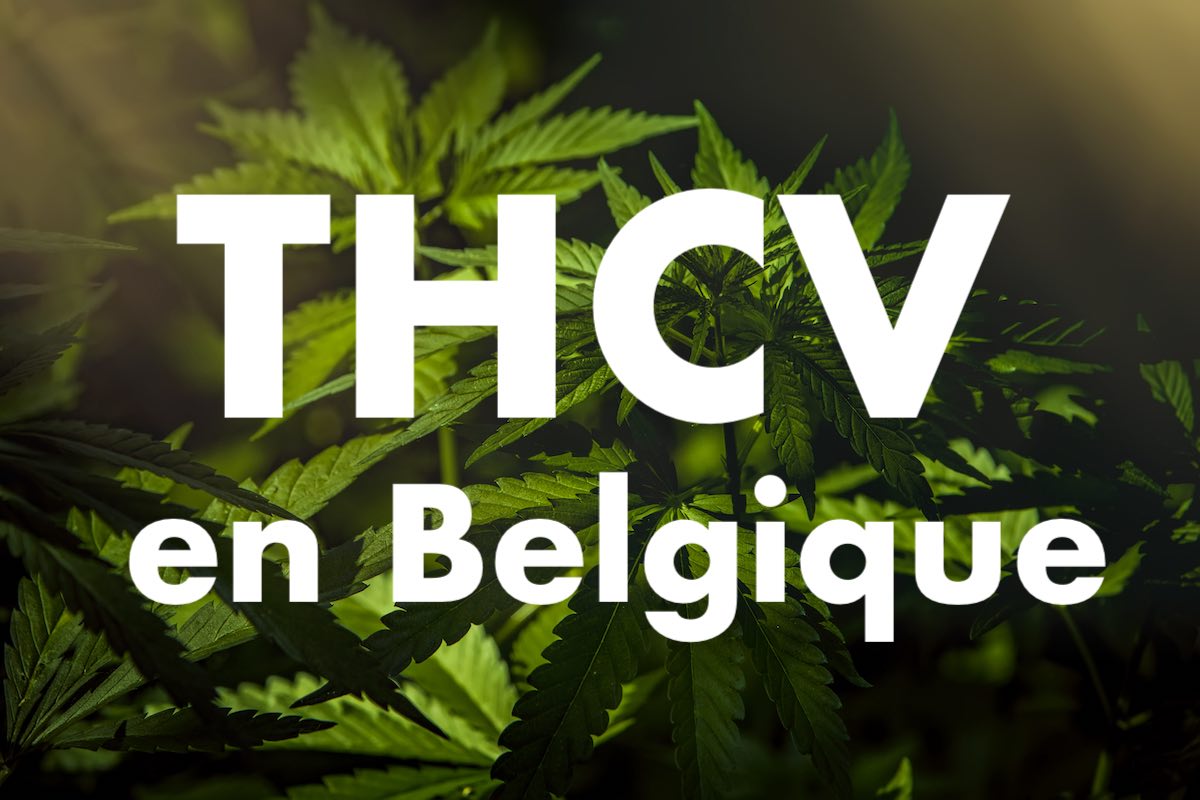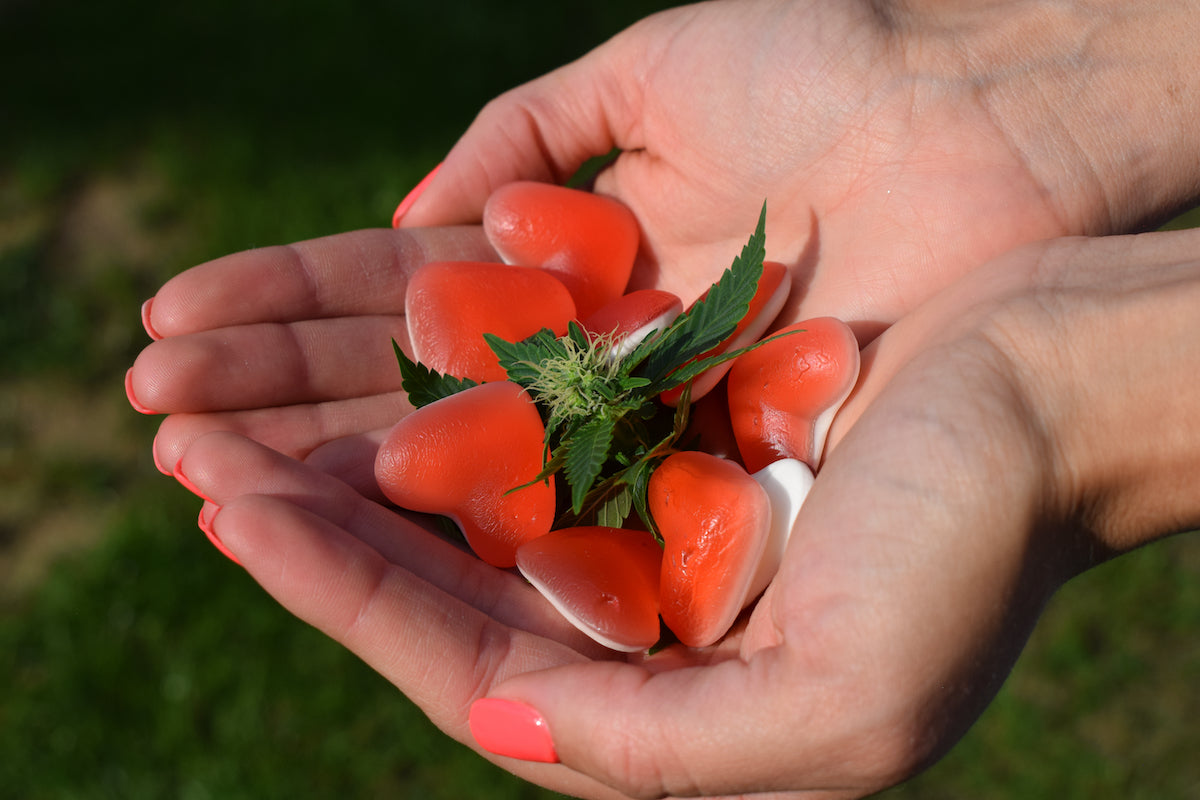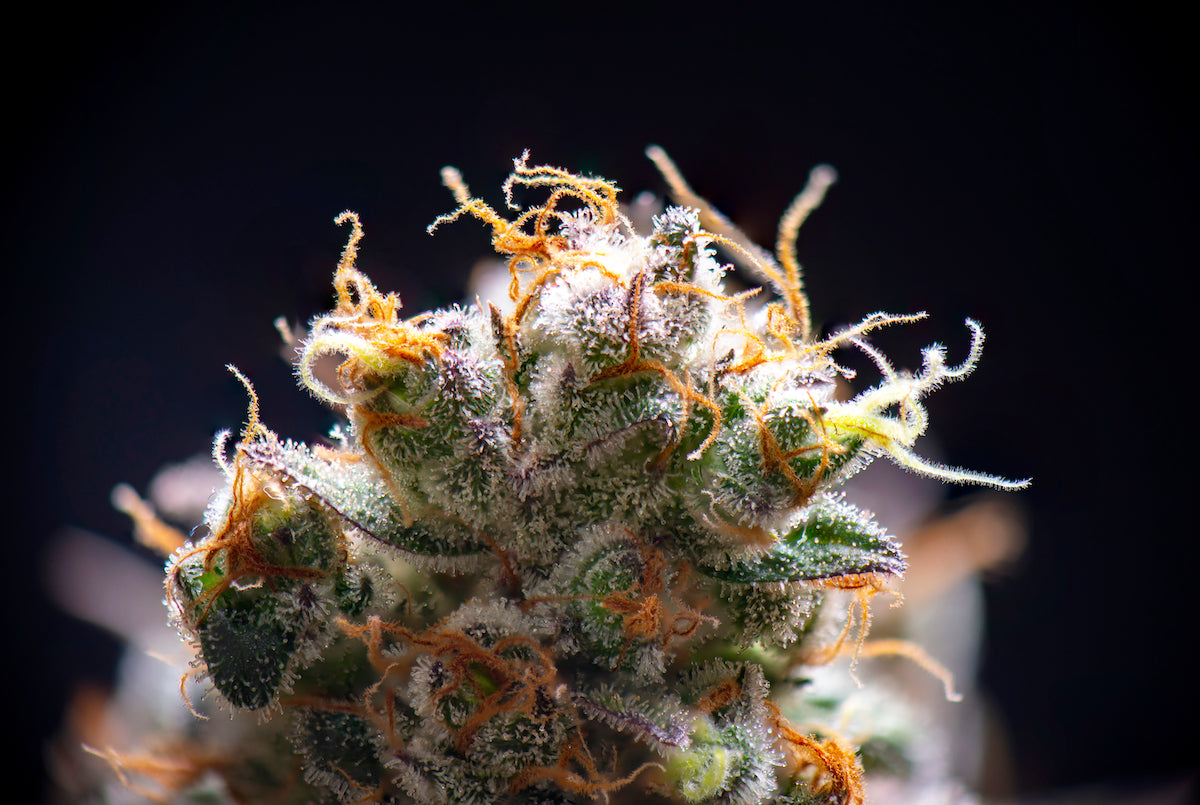Cannabis is a complex plant that contains many chemical compounds, including cannabinoids. Among these cannabinoids, THC (tetrahydrocannabinol) and CBD (cannabidiol) are the best known and most studied. However, there are other lesser-known but equally interesting cannabinoids, including THCV (tetrahydrocannabivarin). In this article, we will present you with a complete guide to THCV in Belgium , explaining its origins, its chemical and pharmacological properties, its potential uses in the health field and the precautions to take when consuming it.
Contents:
I. What is THCV?
A. Chemical structure and properties of THCV
B. Differences between THCV, THC and CBD
II. Origin and sources of THCV
A. THCV-rich cannabis strains
B. Cannabis Cultivation Methods to Achieve High THCV Levels
III. Mechanisms of action of THCV in the human body
A. Interaction with the endocannabinoid system
B. Pharmacological and metabolic effects of THCV
IV. Effects of THCV on health and disease
A. Appetite suppression and body weight management
B. Stimulating and energizing effects of THCV
C. Potential use of THCV in the treatment of metabolic disorders
D. Effects of THCV on neurological and psychiatric disorders
E. Anti-inflammatory and analgesic effects of THCV
V. Potential uses of THCV in the medical and therapeutic fields
A. Clinical studies on THCV and its therapeutic effects
B. Use of THCV in the treatment of epilepsy
C. THCV and treatment of mood and anxiety disorders
D. THCV and management of symptoms related to Parkinson's disease
E. Potential of THCV in the treatment of obesity and diabetes
F. Effects of THCV on cancer and inflammatory diseases
VI. Methods of Consumption of THCV
A. Inhalation of cannabis flowers rich in THCV
B. Use of cannabis concentrates containing THCV
C. Pharmaceutical and medical products based on THCV
VII. Precautions and Considerations When Consuming THCV
A. Possible side effects of THCV
B. Interaction with other drugs and substances
C. Legislation and regulations regarding THCV
VIII. Conclusion and future perspectives
A. Summary of Benefits and Potential Uses of THCV
B. Need for additional research on THCV
C. Importance of consulting a health professional before consuming THCV
I. What is THCV ? THCV (tetrahydrocannabivarin) is a cannabinoid naturally found in cannabis. It is structurally similar to THC, but with a few key differences. THCV is considered a minor cannabinoid because it is found in much lower amounts in cannabis strains than THC and CBD. However, in recent years, THCV has attracted attention due to its unique properties and therapeutic potential.
A. Chemical Structure and Properties of THCV : THCV consists of 21 carbon atoms, 30 hydrogen atoms and 2 oxygen atoms. Its chemical structure is similar to THC, but with a slight difference in the position of a chemical group. This difference gives THCV distinct properties compared to THC and CBD.
THCV is a partial agonist of the cannabinoid type 1 (CB1) and type 2 (CB2) receptors, meaning that it binds to these receptors and produces pharmacological effects in the body. However, its effects differ from those of THC and CBD due to its particular interactions with receptors.
B. Differences between THCV, THC and CBD : Although THCV and THC share structural similarities, they differ in their pharmacological effects. THC is known for its psychoactive effects, producing a feeling of euphoria and intoxication. On the other hand, THCV is often described as a modulator of the effects of THC, being able to reduce some of its psychoactive effects.
CBD, on the other hand, is a non-psychoactive cannabinoid that exhibits anti-inflammatory, analgesic and anxiolytic properties. Unlike THC and THCV, CBD does not bind directly to the CB1 and CB2 cannabinoid receptors. Instead, it interacts with other receptors and pathways in the body to produce its effects.
II. Origin and sources of THCV : THCV occurs naturally in some varieties of cannabis, but in relatively small amounts. Some cannabis strains are genetically predisposed to producing higher levels of THCV than others. The presence of THCV in a cannabis strain depends on its genetics, growing environment and growing conditions.
A. Cannabis Strains High in THCV : Certain cannabis strains are known to contain high levels of THCV. Among the most famous are the South African variety "Durban Poison" and some varieties of African origin, notably "Malawi Gold" and "Red Congolese". These strains are often sought after by consumers who are specifically interested in the effects of THCV.
B. Cannabis Growing Methods to Achieve High THCV Levels : To grow THCV-rich cannabis strains, it is essential to select the right genetics and create optimal growing conditions. Growers can use breeding and breeding techniques to promote THCV production in plants. Factors such as light, temperature, humidity and nutrients can also influence THCV production.
III. Mechanisms of action of THCV in the human body : THCV interacts with the human body's endocannabinoid system (ECS), which includes cannabinoid receptors, endocannabinoids produced naturally by the body, and enzymes responsible for their metabolism. The ECS plays an important role in regulating many physiological processes, such as pain, appetite, mood, inflammation, and metabolism.
A. Interaction with the endocannabinoid system : THCV binds primarily to CB1 and CB2 receptors in the ECS, although it may also interact with other receptors and pathways. However, unlike THC, THCV is considered a partial agonist of the CB1 and CB2 receptors, meaning it can modulate their activity rather than binding tightly and completely.
B. Pharmacological and Metabolic Effects of THCV : The pharmacological effects of THCV are still being studied, but preliminary research suggests several interesting properties. For example, THCV can have stimulating and energizing effects, unlike THC, which is often associated with sedative effects. Additionally, THCV may influence appetite and body weight management, which may have implications in the treatment of obesity and diabetes.
IV. Effects of THCV on health and disease : THCV exhibits a wide range of properties potentially beneficial to human health. Although some research has been done, many studies are still needed to fully understand the effects of THCV on different medical conditions. Preliminary results suggest the following effects of THCV:
A. Appetite Suppression and Body Weight Management : Some studies have shown that THCV can reduce appetite, making it a potential candidate for the treatment of obesity. Animal research has shown that THCV can influence appetite control centers in the brain, suppressing appetite and regulating fat metabolism.
B. Stimulating and energizing effects of THCV : Unlike THC, which tends to produce sedative and relaxing effects, THCV can have stimulating and energizing effects. Preliminary studies have shown that THCV may improve concentration, energy, and attention, making it a potential candidate for the treatment of fatigue and drowsiness.
C. Potential use of THCV in the treatment of metabolic disorders : Due to its effects on appetite and fat metabolism, THCV is being studied for its potential in the treatment of obesity, type 2 diabetes and other metabolic disorders. Research has shown that THCV can improve insulin sensitivity and regulate blood glucose levels.
D. Effects of THCV on neurological and psychiatric disorders : Some studies have suggested that THCV may have beneficial effects on neurological and psychiatric disorders such as Parkinson's disease and schizophrenia. Further research is needed to confirm these preliminary results and understand the underlying mechanisms.
E. Anti-inflammatory and analgesic effects of THCV : THCV has demonstrated potential anti-inflammatory and analgesic properties in animal models and in vitro. These properties could be beneficial in the treatment of chronic pain and inflammatory diseases, but clinical studies are needed to evaluate its effectiveness in humans.
V. Potential Uses of THCV in Medical and Therapeutic Fields : There is growing interest in THCV as a compound that can be used in the treatment of various medical conditions. However, it should be noted that research on THCV is still limited, and many studies are needed to confirm its potential therapeutic effects. Some potential uses of THCV include:
A. Clinical Studies on THCV and Its Therapeutic Effects : Clinical trials are needed to evaluate the effectiveness and safety of THCV in the treatment of various diseases. Preliminary results suggest that THCV may be beneficial in the treatment of obesity, diabetes, epilepsy, mood disorders and Parkinson's disease.
B. Use of THCV in the treatment of epilepsy : Preliminary studies have suggested that THCV may have anticonvulsant effects and reduce seizure frequency in patients with epilepsy. However, further research is needed to confirm these results and determine appropriate doses.
C. THCV and treatment of mood and anxiety disorders : Some research suggests that THCV may have anxiolytic and antidepressant properties. Preclinical studies have shown positive effects of THCV in animal models of mood and anxiety disorders. However, clinical studies are needed to evaluate its effectiveness in humans.
D. THCV and Managing Parkinson's Disease Symptoms : Preliminary studies have suggested that THCV may help reduce symptoms of Parkinson's disease, such as tremors and muscle rigidity. However, more research is needed to fully understand the effectiveness and mechanism of action of THCV in this condition.
E. Potential of THCV in the treatment of obesity and diabetes : Due to its supposed effect of suppressing appetite and regulating fat metabolism, THCV could be used in the treatment of obesity and diabetes. type 2 diabetes. However, extensive clinical studies are needed to evaluate its long-term effectiveness and safety.
F. Effects of THCV on Cancer and Inflammatory Diseases : Preliminary studies have suggested that THCV may have anticancer and anti-inflammatory properties. However, these results are based on in vitro studies and animal models, and additional clinical research is needed to evaluate its therapeutic potential in humans.
VI. Methods of Consumption of THCV : THCV can be consumed in a variety of ways, depending on personal preference and the products available. Common THCV consumption methods include:
A. Inhaling THCV-rich cannabis flowers : The most common method of consuming THCV is inhaling THCV-rich cannabis flowers. This can be achieved by using a vaporizer or by smoking the flowers. You can already find disposable puffs of THCV, cartridges for dab pens in Belgium. Inhalation allows rapid absorption of THCV into the body, producing faster effects.
B. Use of Cannabis Concentrates Containing THCV : Cannabis concentrates, such as oils and extracts, may also contain THCV. These products are typically used with vaporizers or dabbing devices. Cannabis concentrates offer a higher concentration of THCV compared to cannabis flowers, which may be beneficial for some users.
C. THCV-based pharmaceutical and medical products : In the future, it is possible that specific THCV-containing pharmaceutical and medical products may be developed. These products could offer precise doses of THCV, making it easier to use for therapeutic purposes.
VII. Precautions and Considerations When Consuming THCV : Although THCV is considered safe for moderate consumption, it is important to take certain precautions and consider the following factors:
A. Possible side effects of THCV : Although the side effects of THCV are not fully known, preliminary studies have reported potential adverse effects such as nausea, dizziness, mood changes, and gastrointestinal problems. It is important to carefully monitor individual reactions when consuming THCV.
B. Interaction with other drugs : THCV may interact with certain drugs, particularly those that are metabolized by specific liver enzymes. It is recommended to consult a healthcare professional before consuming THCV, especially if you are taking other medications or have pre-existing medical conditions.
C. Legality of THCV : The legality of THCV may vary depending on jurisdiction. In some regions, THCV may be considered a regulated or illegal cannabinoid. It is important to learn about local laws before consuming THCV.
-
THCV Belgium Capsules: Capsules containing a precise dose of THCV, which can be taken easily with water.
-
CBD/THCV Oils Belgium: Blends of CBD and THCV oils, often used as dietary supplements or for medicinal purposes.
-
THCV Vaporizers Belgium: Disposable or rechargeable devices designed to vaporize THCV, offering a smoother and faster inhalation.
-
Dab pen cartridges Belgium: Cartridges filled with THCV concentrates, designed for use with specific vaporization pens (Dab pens).
-
Resin and flowers Belgium: Cannabis products naturally containing THCV, such as resins or flowers rich in this substance. They can be used to prepare infusions, tinctures or other culinary preparations.
-
THCV Gummies Belgium: Gummies infused with THCV, offering a convenient and discreet way to consume this substance.
-
THCV Belgium Cookies: Cookies or pastries containing THCV, which can be consumed directly or used as ingredients in other preparations.
-
THCV Belgium e-liquids: Liquids used in electronic cigarettes, containing THCV for vaporized inhalation.
-
Puff / Vape Disposable THCV Belgium: Disposable devices pre-filled with liquid containing THCV, offering a practical alternative to traditional vapers.
VIII. Conclusion : THCV is a promising cannabinoid with unique properties and interesting therapeutic potential. Although it still requires extensive research to confirm its effects and medical usefulness, THCV opens up new perspectives in the field of medical cannabis. It is essential to consult a qualified healthcare professional before consuming THCV for proper advice and recommendations.





Leave a comment
All comments are moderated before being published.
This site is protected by hCaptcha and the hCaptcha Privacy Policy and Terms of Service apply.